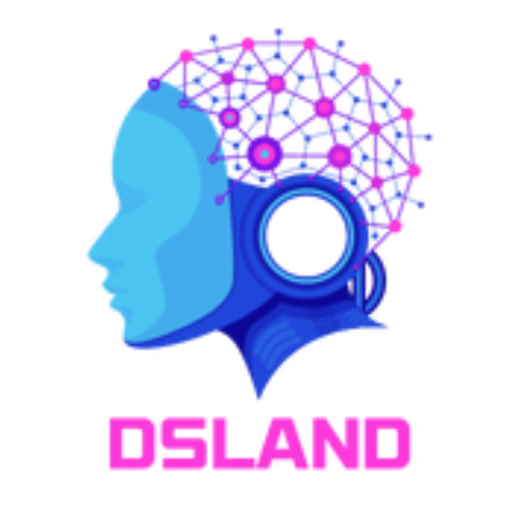Urgent Call for AI Integration in Colorado Classrooms
The era of artificial intelligence (AI) is upon us, and it is profoundly reshaping various aspects of our daily lives and industries. Education, a cornerstone of societal progress, is no exception. Recently, a significant push has emerged from Colorado’s education system, calling for an urgent integration of AI into classrooms. This move aims not only to modernize learning environments but also to better prepare students for a tech-centric future.
The Colorado Education Initiative’s Groundbreaking AI Roadmap
The Colorado Education Initiative (CEI) is leading the charge with a comprehensive AI roadmap designed to ensure that schools across the state can effectively incorporate AI technologies. This plan seeks to address the challenges and leverage the benefits of AI to enhance educational experiences and outcomes for students.
Main Objectives and Goals
The CEI’s AI roadmap outlines several key objectives:
- Improving Student Performance: By using AI to personalise learning, educators can better identify students’ strengths and weaknesses.
- Enhancing Teaching Efficiency: Integrating AI tools can reduce administrative burdens on teachers, allowing them to focus more on instruction and student interaction.
- Preparing Students for the Future: Exposure to AI technologies prepares students for future careers that will increasingly demand tech-savvy skills.
- Closing the Achievement Gap: AI can offer tailored resources that cater to individual learning needs, helping bridge disparities in student achievement.
Challenges and Solutions for AI Integration
While the benefits of integrating AI in education are evident, several challenges must be addressed. The CEI’s AI roadmap provides strategic solutions to these issues.
Infrastructure and Accessibility
A significant challenge is the current disparity in technological infrastructure across schools. Many rural and underfunded schools lack the resources needed to support AI initiatives. The roadmap proposes:
- Upgrading Technological Infrastructure: Investment in hardware, software, and reliable internet access for all schools.
- Funding and Grants: Securing state and federal funds, as well as private grants, to support these upgrades.
Teacher Training and Professional Development
Effectively integrating AI into the classroom requires well-trained educators who are proficient in using these new tools. The roadmap suggests:
- Comprehensive Training Programs: Offering continuous professional development and training for teachers on AI applications.
- Collaborative Learning Communities: Creating networks where teachers can share best practices and insights on AI usage.
- Mentorship Programs: Pairing teachers with AI expertise with those who are less familiar to provide guided learning experiences.
AI in Action: Practical Applications in the Classroom
A critical component of the CEI’s roadmap is demonstrating how AI can be practically applied in classroom settings. These applications include:
Personalized Learning Paths
AI-driven platforms can analyze student data to create customized learning experiences, adapting to each student’s unique needs and pace. This approach leads to more effective and engaging education.
Automated Grading Systems
Teachers often spend countless hours grading assignments, time that could be better spent on direct student engagement. AI can streamline this process through automated grading systems, providing prompt and precise feedback on student work.
Virtual Tutors and Assistants
AI-powered virtual tutors can assist students in real-time, providing additional support outside of regular class hours. These tools ensure that students receive the help they need whenever they need it, enhancing learning outcomes.
Enhanced Data-Driven Insights
By leveraging AI, schools can gather and analyze extensive data on student performance and behavior. This information helps educators identify trends, predict potential challenges, and implement early interventions.
Ethical Considerations and Ensuring Equity
While the integration of AI offers numerous advantages, ethical considerations must be at the forefront of these initiatives. The CEI’s AI roadmap emphasizes the importance of ensuring equity and addressing ethical concerns.
Data Privacy and Security
The handling of student data is a critical issue. The roadmap includes stringent measures for protecting student privacy and ensuring that data is used ethically and securely.
Bias and Fairness in AI
AI systems must be designed to avoid perpetuating biases. The roadmap encourages the development and use of AI tools that offer fair and unbiased learning opportunities for all students.
Community and Stakeholder Engagement
For the successful integration of AI in education, collaboration with the broader community is essential. The CEI’s roadmap calls for active engagement with various stakeholders:
- Parents and Guardians: Educating families about the benefits and implications of AI in learning.
- Local Businesses and Tech Companies: Fostering partnerships to support AI initiatives in schools.
- Policy Makers: Advocating for supportive policies and regulations that facilitate AI integration.
A Vision for the Future
As the CEI continues to implement its AI roadmap, the vision for Colorado’s educational future becomes increasingly clear. By embracing AI, the state aims to create an innovative and adaptable education system that is well-equipped to meet the demands of the 21st century.
Opportunities for Innovation
The integration of AI opens the door to numerous possibilities for educational innovation. From immersive learning environments using augmented reality (AR) and virtual reality (VR) to advanced simulation and modeling tools, AI is set to transform the educational landscape.
Global Competitiveness
Preparing Colorado’s students with AI proficiency positions them to compete on a global scale. As AI becomes increasingly prevalent worldwide, students equipped with these skills will have a significant advantage in the international job market.
Conclusion
The urgent call for AI integration in Colorado classrooms, spearheaded by the Colorado Education Initiative, is a significant step toward modernizing education. By addressing challenges, providing practical applications, and emphasizing ethical considerations, the state is paving the way for a more effective, equitable, and future-ready education system. As stakeholders come together to support this transformative journey, the ultimate beneficiaries will be the students, who will find themselves better prepared for the rapidly evolving world.
